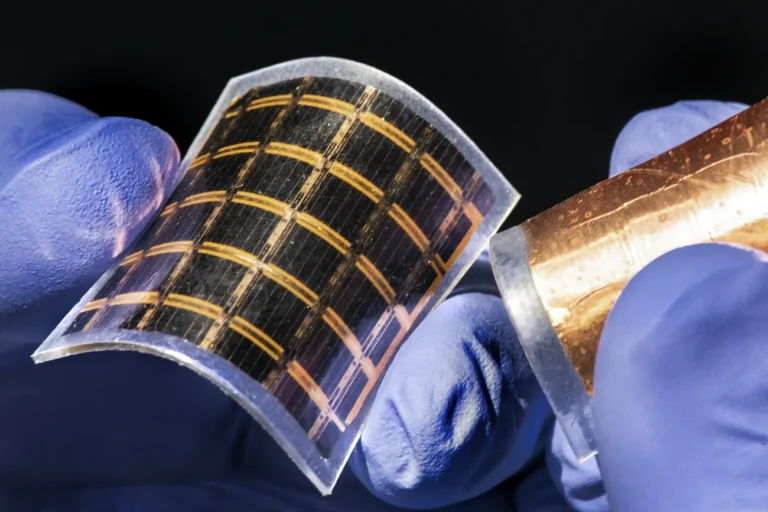Organic Solar Energy Developments
A Look at some of the most recent insights into the world of organic solar energy solutions

In today’s blog, we are going to look at some recent findings within one area of renewable energy that is offering new avenues towards a sustainable future: the further development of solar tech.
Organic Photovoltaics
One leading area of investigation is organic photovoltaics. This is an approach to creating solar panels out of conductive organic polymers, or small organic molecules, to produce electricity from sunlight by the photovoltaic effect. Compared to silicon-based devices, polymer solar cells are lightweight, less expensive to fabricate, flexible, and, due to their organic basis, ultimately less harmful to the environment. Polymer solar cells also have the potential to exhibit transparency, which means they can in theory be used in windows, walls and flexible electronics. The main disadvantage of polymer solar cells, however, is that their efficiency is only about a third of hard materials. They also experience substantial photochemical degradation.
Improving this efficiency is what prompted researchers at City University of Hong Kong to investigate a novel photophysical mechanism that has achieved record-breaking efficiency for organic photovoltaics. Their process involved suppressing energy loss associated with the traditional ‘bulk-heterojunction’ structure that has, to date, created the most efficient organic photovoltaics. By suppressing energy loss in the form of heat at the donor-acceptor interface, the researchers were able to increase a cell’s energy efficiency to a point where commercial applications may very soon be possible.
Sustainable Thermoelectric Materials
Similarly, a team from Tokyo Tech have introduced a promising class of environmentally friendly thermoelectric materials (TEMs) designed to address efficiency and environmental toxicity issues in solar panels. Traditional high-performance thermoelectric materials often contain toxic elements like lead and tellurium, while non-toxic oxide-based thermoelectric materials have until now faced limitations due to higher thermal conductivity. The Tokyo Tech team looked at exploring a sustainable “inverse”-perovskite-based thermoelectric material with a different chemical formula, Ba3BO. These materials exhibit a unique crystal structure that results in low thermal conductivity, a key factor in enhancing the performance of a solar device. Synthesized Ba3BO materials outperformed traditional thermoelectric materials, suggesting that these too could be an avenue for sustainable thermoelectric materials in the near future.
Sustainable Storage Solutions
And it is not just the collection of light via the solar cell that has drawn the attention of researchers: improving the efficiency and sustainability of energy storage solutions has also been the focus of recent investigations between the University of Cordoba and the Max Planck Institute for Solid State Research in Germany. The two teams explored the design characteristics of a solar battery device made from a harmless, abundant, environmentally sustainable material extracted from urea that is easy to synthesize. Solar batteries combine solar cells with storage capabilities in a single device that allows energy collected from the sun to be harvested and later used when needed. In this case, the semi-transparent device is able to absorb light on both sides, in the process creating a solution able to collect a large, one-off current like that needed by photography flash, as well as smaller currents that can be sustained over time (such as that needed by a mobile phone).
If you are a solar technician or are considering working in this space and hold an engineering or electrical background, please follow us on Linkedin to indicate your interest and contact us for more information about working opportunities in the renewable energy sector within Germany.
